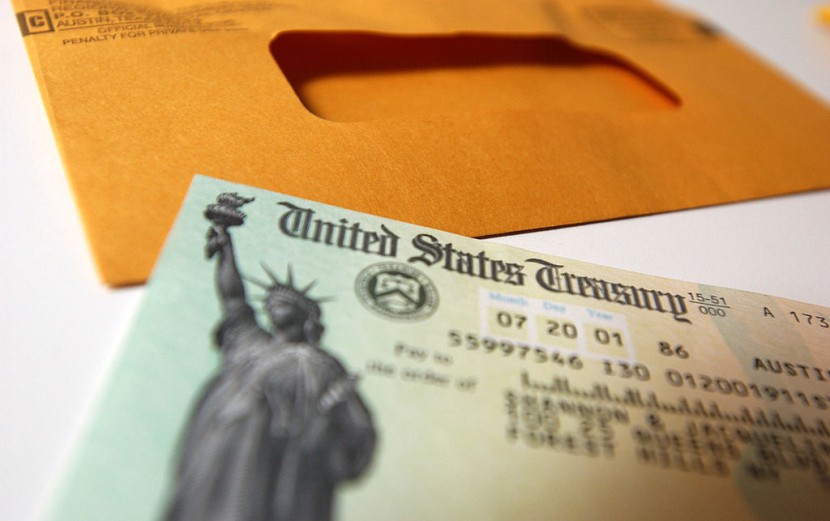
Beginning on January 23, 2023, the 2023 tax season is well underway. The formal deadline for most taxpayers to submit their 2022 tax returns is April 18, 2023, but filers who need more time can ask for an extension and receive six additional months to complete their paperwork.
Nevertheless, they must still pay any taxes owed by Tax Day. Millions of Americans have already submitted their tax filings, and refunds are being issued.
How To Claim Child Tax Credit?
It is anticipated that refunds will be less this year due to the termination of financial aid from the IRS in the form of enhanced tax credits and stimulus payments. People may still be eligible for thousands of dollars this tax season to decrease their tax burden or raise their return.
Nevertheless, you may only claim a tax refund if you file a tax return and complete the requirements. The Child Tax Credit is one such credit that can be worth up to $2,000 per qualifying kid for qualified taxpayers.
Filing a tax return might result in a refund for People who do not ordinarily file a tax return because they are exempt from doing so. These taxpayers are normally qualified to use the IRS's Free File programs to electronically file their tax returns at no cost, according to AS.com.
The online programs guide tax return filers through the various tax credits. To expedite the processing of tax returns, the IRS encourages people to file online and use direct deposit to get their refunds more quickly. You must file a tax return to claim the Child Tax Credit, even if you are not obliged to file a tax return. You may be eligible to claim a portion of the credit and get it as a tax refund, even if you have no outstanding tax liability with the government.
The Earned Income Tax Credit (EITC) and the Child and Dependent Care Tax Credit are additional credits that might result in a lesser tax liability or a larger refund. The Child Tax Credit has been modified for the 2022 fiscal year, as the 2021 American Recovery and Reinvestment Act increase, which included forward payments, is no longer in force.
Nonetheless, this should make claiming the benefit considerably simpler this year. The benefit is reduced to a maximum of $2,000 per qualified kid, and eligibility requirements are tightened, reverting to those in place before the Tax Cuts and Jobs Act of 2017.
If Congress does not adjust the credit before the 2025 fiscal year, these modifications will remain in place until then. This year, the credit is partially refundable, and there is an income threshold to begin claiming the refundable half, known as the "Additional Child Tax Credit," which is worth up to $1,500; for the 2023 tax year, the barrier will climb to $1,600.
The refundable component will be added to the tax refund of taxpayers who owe fewer taxes than the refundable amount. At the same time, the non-refundable half will decrease taxes due dollar-for-dollar. To get a refund, taxpayers must submit Form 8812.
Child Tax Credit 2023 Requirements
The Child Tax Credit will not be removed but restored to its prior levels. Per Yahoo, before the IRS will allow you to claim the tax credit, you and your children must fulfill several conditions, including:
- Income limits of $400,000 for married couples and $200,000 for all other taxpayers (single taxpayers and heads of households).
- Your credit is lowered by $50 for every $1,000 beyond the threshold that your income exceeds.
- Each eligible child must be a citizen or permanent resident of the United States and have a valid Social Security number.
- The child is a legally recognized stepchild, foster child, sibling, half-brother, or half-sister, or descendant of one of the aforementioned groups (such as a grandchild, niece, or nephew).
- Last year, you contributed at least half of the child's financial assistance.
- The qualified kid resided with you for more than six months.
- The child must be claimed as a dependent on your tax return.
If President Joe Biden has his way, next year's tax returns for Americans who receive a Child Tax Credit would be greater. In the budget proposal announced on Thursday, President Biden proposes increasing the Child Tax Credit from $2,000 per kid to $3,000 per child for children aged six and older and to $3,600 per child for children under 6.
As part of pandemic relief, parents received an enhanced Child Tax Credit in 2021, but the benefit expired despite Democratic attempts. The budget promises universal, free preschool education countrywide. Moreover, it intends to institute 12 weeks of paid family leave.
Biden proposes increasing the Medicare tax rate from 3.8% to 5% for people earning more than $400,000 annually. The budget would also increase the number of pharmaceuticals for which Medicare negotiates pricing and accelerate the negotiation process for new drugs.
According to the White House, the budget contains $59 billion in mandated spending and tax incentives to increase the supply of affordable housing. Biden also proposes increasing the Pell Grant by $500 per student. Also, the budget would increase free community college tuition, as per WXYZ.
Related Article: IRS Starts Sending Tax Refunds; Here's How To Track Yours!
@YouTube








